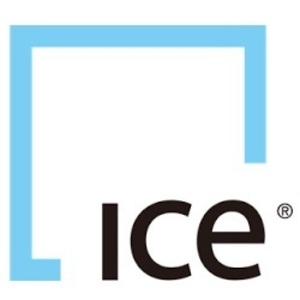ICE launches renewable volume obligation futures

March 29, 2022
BY Intercontinental Exchange Inc.
Intercontinental Exchange Inc. (ICE), a leading global provider of data, technology, and market infrastructure, on March 28 announced the launch of two renewable volume obligation (RVO) futures contracts, expanding ICE’s U.S. renewable fuels futures markets.
The U.S. EPA’s Renewable Fuel Standard mandates the incorporation of renewable fuels into transportation fuel. Each year, the EPA outlines the volume requirements for each renewable fuel category and sets those volumes through the annual renewable volume obligation (RVO).
Obligated parties under the RFS program include refiners and importers of transportation fuel in the U.S. Each year these companies calculate their renewable fuel obligation by multiplying the RVO percentage across the four renewable fuel categories under the RFS, by the volume of transportation fuel they produced or imported that compliance year.
Advertisement
The RVO applies to a basket of U.S. renewable identification numbers (RINs) which are credits generated by renewable fuel producers to track the compliance of transportation fuel under the RFS program. Companies must either generate RINs or purchase them to meet their annual commitments. The RVO is critical to the margin calculations of refiners, as well as importers and exporters of transportation fuels, and is an important consideration when exporting fuel and determining whether arbitrage opportunities exist, as well as influencing the crack spread for refiners using the fuel to create other products.
As a result, companies need a means to hedge their RVO exposure and ICE has today launched the RVO (OPIS) Current Year Future & Argus RVO Current Year Future, based on the OPIS and Argus daily price assessments. Each futures contract is equivalent to 50,000 gallons.
“Compliance with the Renewable Fuel Standard is a cost which refiners and importers of transportation fuel in the U.S. need to manage,” said Jeff Barbuto, global head of oil markets at ICE. “The RVO futures, in combination with our existing RINs futures, will help the market manage exposure to renewable fuel obligations. RINs volume and open interest have reached record levels in 2022 as this market continues to grow and companies recognize the benefits of hedging this cost.”
Advertisement
ICE offers cash settled RINs futures, including the D6 ethanol and D4 biodiesel (OPIS) (product codes: RIN and RIK). The number of participants trading ICE RINs has doubled versus 2020 as participants manage their exposure to the price of RINs. So far this year, roughly 7,861 RIN futures have traded, equivalent to 393 million RINs.
ICE’s renewable fuels futures markets form part of ICE’s extensive environmental complex. ICE offers customers access to the largest and most liquid environmental markets in the world to manage and price emissions, as well as meet compliance obligations. In 2021, ICE traded a record 18 billion tons of carbon allowances, equivalent to an estimated $1 trillion in notional value and equal to over half the world’s estimated total annual energy-related emissions footprint.
Related Stories
The U.S EPA on July 17 released data showing more than 1.9 billion RINs were generated under the RFS during June, down 11% when compared to the same month of last year. Total RIN generation for the first half of 2025 reached 11.17 billion.
The U.S. EPA on July 17 published updated small refinery exemption (SRE) data, reporting that six new SRE petitions have been filed under the RFS during the past month. A total of 195 SRE petitions are now pending.
European biodiesel producer Greenergy on July 10 confirmed plans to shut down its biodiesel plant in Immingham, Lincolnshire, U.K. The company temporarily suspended operations at the facility earlier this year.
Aemetis Inc., a renewable natural gas and biofuels company, announced on July 17 that its India subsidiary, Universal Biofuels, appointed Anjaneyulu Ganji as chief financial officer, effective July 17.
Avia Solutions Group, the world's largest ACMI (aircraft, crew, maintenance, and insurance) provider, has partnered with DHL Express to reduce greenhouse gas emissions from its international shipments using SAF.
Upcoming Events










